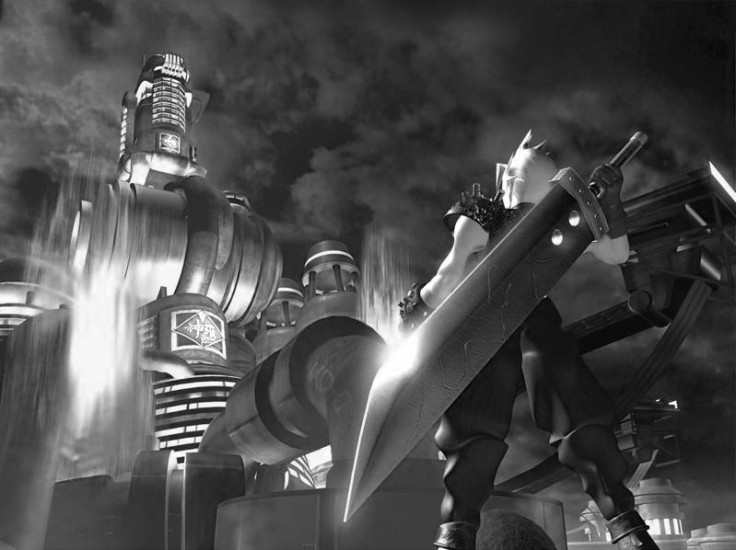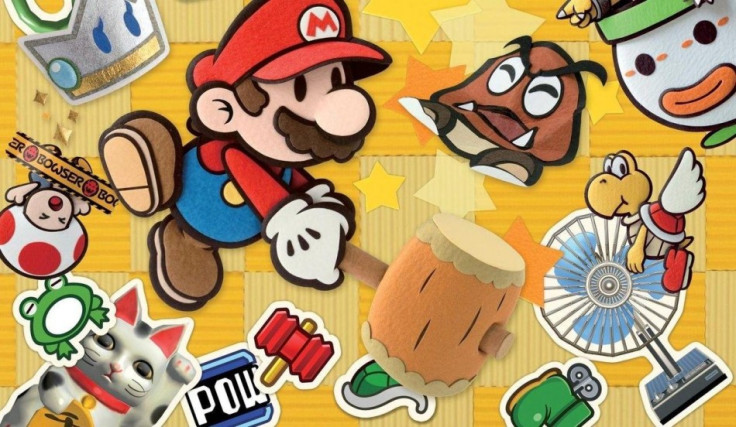Why Games Matter Blog - Computer Games Aren't for Adults
A blog dedicated to big issues affecting the games industry
Computer Games Aren't for Adults - An alienating amount of videogame subject matter is aimed at children

I remember in 2002, when I was twelve, I was playing The Getaway and my dad walked in: "What are you doing?" he asked. "Drug bust," I said, "I'm this armed policeman in London." He scoffed, turned to leave and said "you need to find something else, Ed" before walking out of the room.
I wasn't paying attention of course. After I'd got up to shut and lock my bedroom door again, I was back in front of the screen shooting crooks and crashing cars like a good little gamer.
But now, a decade later, I feel like pops was onto something. A grown man with a national insurance number and a tax bracket, I do need to find something else. Or rather, computer games need to give it to me.
Bloodlust
Computer games are gleefully shut in. Like your average young gamer (door locked, curtains closed) it's rare a videogame troubles itself with real-life. There are simplistic warsploitation things like Call of Duty, and adolescent satire in Grand Theft Auto, but really, there's no toothy cultural commentary, no bloodlust. The most plundered genres are sci-fi and fantasy. Few people are making non-fiction games.
And the fantastical ones aren't even analogous. When I think of something like The Handmaid's Tale or 2001: A Space Odyssey, I can put them into the context of eighties social feminism or the Space Race. When I think of Final Fantasy VII, held aloft as one of the great works of videogame fantasy, I don't see what it says about the mid-nineties, or youth, or anything like that.
Aside from a few vague sentiments like 'it's tough growing up' or 'young people often struggle with their identity', I don't think it says anything.

And nor do a lot of games. Quality of graphics, and the respective technology that bore them aside, even epochal works like Skyrim and Halo tell us nothing of the time they were created. They might speak to a certain climate or market trend, or perhaps, some internal politics at the studio that made them, but other than that, I think the extent that games react to broader issues is limited.
People might argue that commentary isn't computer games' purpose and that play and fun come first. But I find that troubling, because as a grown up, who reads newspapers and compares interest rates and thinks about marriage, I don't want to just play; I don't want to still be that 12 year-old in front of The Getaway.
Ignorance
I'm 22 now. I watch HBO boxsets and worry about wars and ask my doctor about stomach cancer. I drift away from friends and stop talking to my parents and hate the government.
Meanwhile, there are bombs and diseases and gangs and edicts; there's racism and sexism, Left and Right. People get murdered and burgled and shat on by politics. And while all this is happening, videogames just cover their ears and go 'lalalalala' and talk about swords and lasers and elves. And it's boring.

The misconception throughout videogames seems to be that the only way to help people feel good about the world is to let them escape from it. I disagree. As a teenager especially, but even today, I'm comforted in knowing that the anxiety and fear and dis-empowerment I feel when faced with modern society is shared with other people.
I like reading and watching things that are aware of war and politics and so on because it makes me feel like something is being done, There's an engagement, there's a protest; there's a challenge. I'm not alone.
So, rather than allowing me blissful ignorance like they did when I was 12, games today make me feel intimidated. They make me feel out of touch and isolated. Because in this emerging, now immensely popular entertainment industry, no-one seems to be talking about anything outside their own heads.
Is it commercial cowardice? Do publishers worry that if games - which are routinely targeted by knee-jerk politicos - wade into real issues they'll be done for insensitivity? Or is it self-esteem? Is it that, after years and years of guns and zombies and boobs, people who work in and play videogames aren't confident the medium can be used to say anything relevant, or clever?
Growing up
Or is it just that we aren't ready yet? Games are still maturing and I'm only 22: Maybe a few years more of playing around would be OK. And it's not like hairs aren't starting to appear on gaming's upper lip. Before writing this blog, I dug out a couple of articles which discuss games alongside real-world events. Here's one looking at the first Splinter Cell in the light of 9/11 and here's another dissecting John Marston as a tool of American expansionism, considering that Red Dead Redemption was launched in 2010 at the height of US drone strikes in Afghanistan.

And with the verisimilar mundanity of Cart Life already out, and the upper class vs lower class discourse of BioShock Infinite coming up, maybe it won't be that long until the industry's voice drops. Technology is improving, tastes are maturing and the people making games are getting older (even notorious fantasist Hideo Kojima has admitted to CVG that now he's getting older, he wants to focus less on giant robots.)
So maybe games are growing up. But until they do, I'm frustrated that I can't turn to them for dense thematic material. I'm frustrated that the power of videogames to visualise something in three dimensions, and give their audience an impassive role in interpretation, isn't being used to explore wider social issues.
In the way that they can make fantasy worlds seem all the more real, I think games have the power to make our own world better understood. It's a pity there aren't more games that look outward. Hopefully, time will change that.
© Copyright IBTimes 2025. All rights reserved.





















